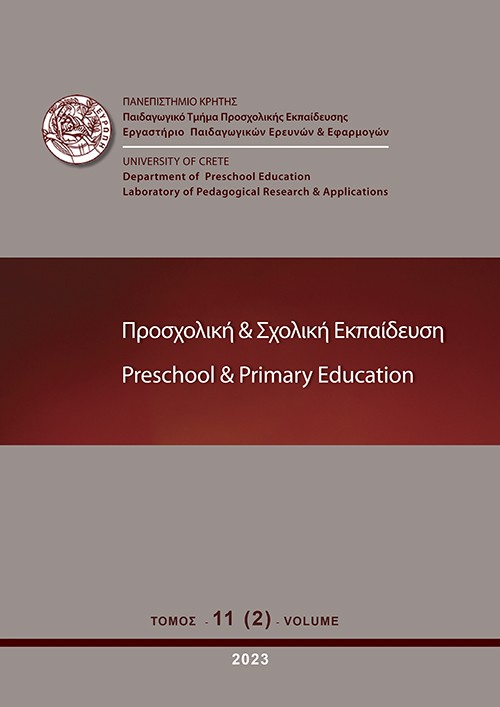Transitions during digital time: continuities and discontinuities of literacy practices in early childhood education

Abstract
The Covid-19 world health crisis has profound implications and its consequences throughout the world had social, cultural, economic and educational ramifications. Worldwide, preschool teachers were invited to develop the students' learning experience in a new digital environment. In a recently new educational setting, in which all educators ‘forced’ to continue their educational practices as to ensure for their students a smooth transition from one level to another, two transitions processes implemented. The first one concerns the move from face-to-face teaching to remote teaching and the second one concern the pre-schoolers’ transition from kindergarten to first-grade of primary school. This paper reports the results of a study concerning the possibilities and perspectives of the digital learning environment for ensuring educational and learning continuity. In this context, 18 Greek preschool teachers and 16 first grade primary school teachers' views on the literacy practices that took place in preschool education during the pandemic in the context of digital classrooms are studied. The views on these practices seen in the context of ensuring the conditions of continuity of programs for the smooth transition of students from kindergarten to first-grade are investigated using the qualitative research method, with semi-structured interviews and analyzsed using thematic analysis. The results showed that support for the transition of young children from preschool to primary school settings and literacy development was inevitably affected into this new educational environment. Although during remote teaching several literacy activities took place, however preschool and first-grade teachers both express their frustration with the transition practices cultivated at this educational setting. Preschool teachers seem to be really disappointed from this experience, as they consider that the problems they faced and the transformations that had to be made at literacy practices did not offer the appropriate framework to meet the requirements of primary school and the transition from early literacy to the elaborated school language. In the same way, first grade teachers agree that although preschool teachers, trying to approach various experiences of oral language, reading and writing in a balanced way, with practices able to maintain the thread of continuity from one grade to another, do not seem to have had the expected results in the context of the digital classroom. However, they both propose the continuity between early childhood and primary school literacy programmes as the key for a smoother transition. They seem to be willingness to change and create a framework for collaboration via a continuous and systematic training program. Therefore, based on evaluations of experiences, a smooth transition and continuity from one level to another could be also facilitated and intermediated by collaboration practices of preschool and primary school teachers and other stakeholders. Furthermore, discontinuities in early childhood literacy education and development could be disappeared if policy makers try to bridge and sculpt ‘distances’ via effective transition programmes. The knowledge of current practice, priorities, challenges, and opportunities will help language educators to adjust their education offer, their syllabi, expectations, or pedagogical approaches to facilitate a more positive and smooth transition process for each and every learner.
Article Details
- How to Cite
-
Apostolou, Z. T. (2023). Transitions during digital time: continuities and discontinuities of literacy practices in early childhood education. Preschool and Primary Education, 11(2), 154–179. https://doi.org/10.12681/ppej.31444
- Section
- Articles

This work is licensed under a Creative Commons Attribution-NonCommercial-ShareAlike 4.0 International License.
Authors who publish with this journal agree to the following terms:
- Authors retain copyright and grant the journal right of first publication with the work simultaneously licensed under a Creative Commons Attribution Non-Commercial License that allows others to share the work with an acknowledgement of the work's authorship and initial publication in this journal.
- Authors are able to enter into separate, additional contractual arrangements for the non-exclusive distribution of the journal's published version of the work (e.g. post it to an institutional repository or publish it in a book), with an acknowledgement of its initial publication in this journal.
- Authors are permitted and encouraged to post their work online (preferably in institutional repositories or on their website) prior to and during the submission process, as it can lead to productive exchanges, as well as earlier and greater citation of published work (See The Effect of Open Access).


